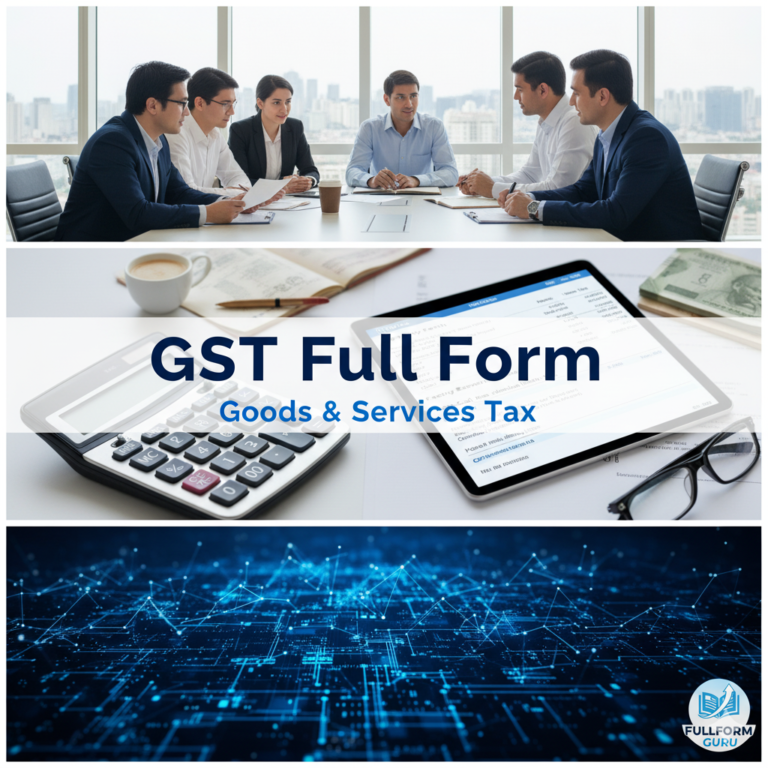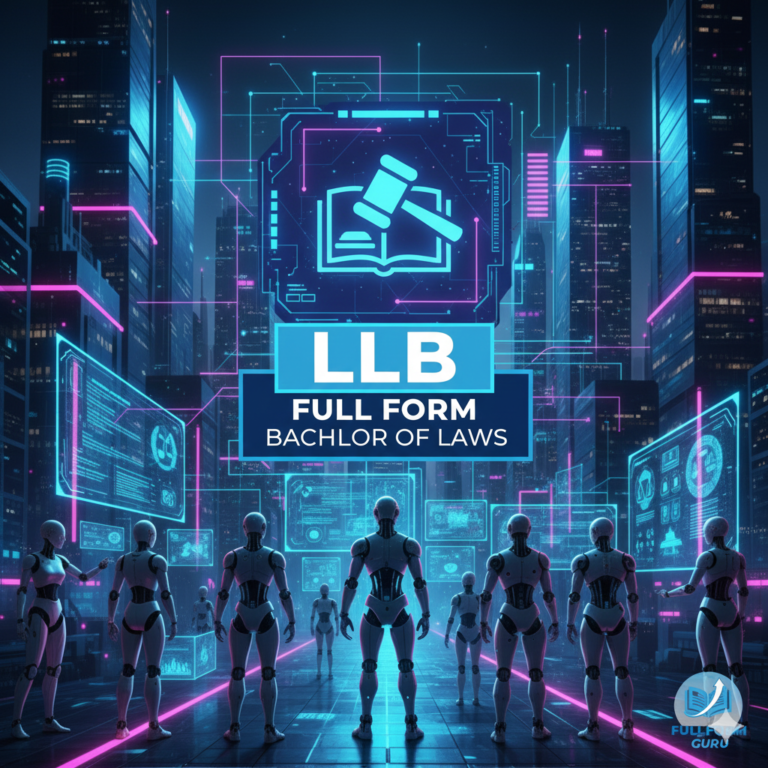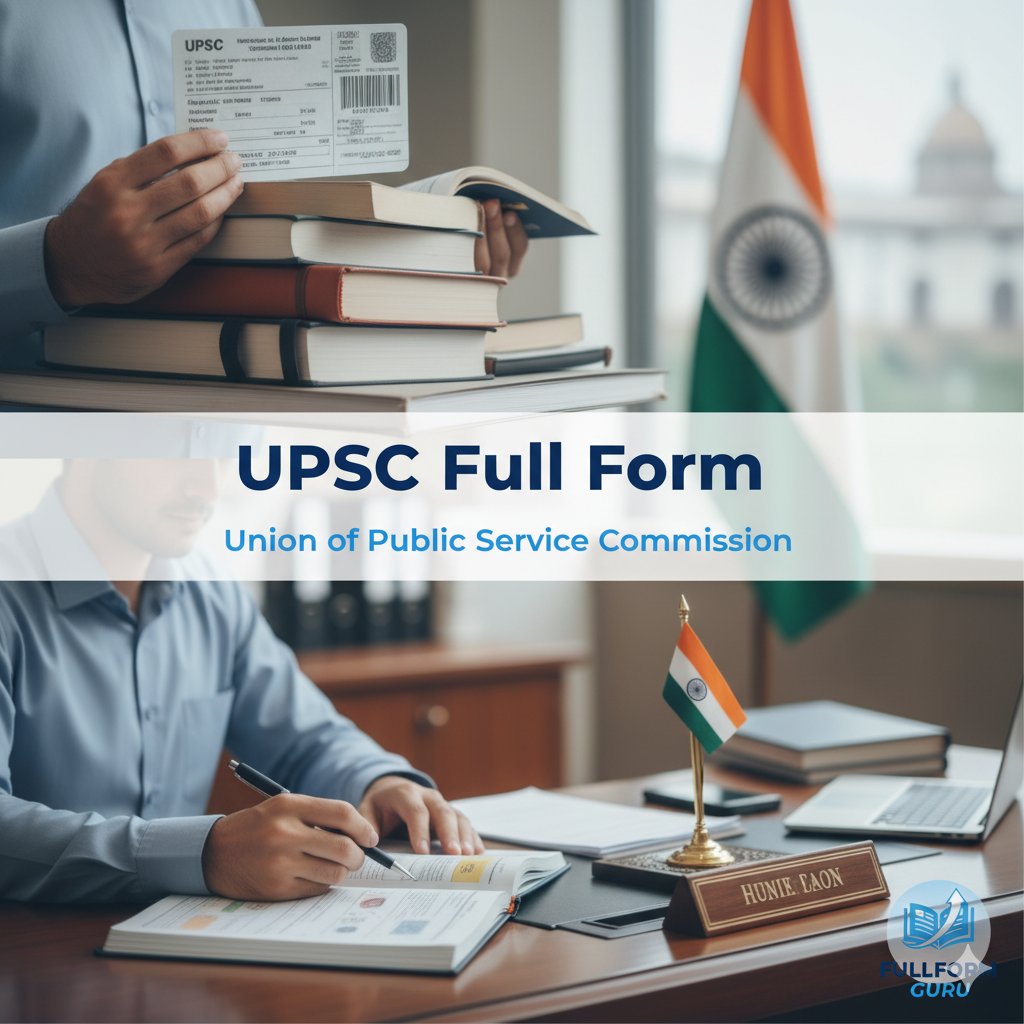
UPSC Full Form: Exam Structure, Eligibility, and Career Guide
Introduction
UPSC stands for the Union Public Service Commission, The Full form of UPSC is Union Public Service Commission, an organization responsible for conducting top-level government exams in India. It is one of the most respected exam organizations in India. It is responsible for recruiting candidates into top government services, including the Indian Administrative Service (IAS), Indian Police Service (IPS), Indian Foreign Service (IFS), and many others. Every year, lakhs of aspirants appear for the UPSC Civil Services Examination, making it one of the toughest competitive exams in the world. Cracking this exam not only opens doors to a stable and respected career but also provides an opportunity to contribute directly to nation-building and public service.
UPSC Full Form and Meaning
UPSC stands for the Union Public Service Commission, which conducts major government recruitment exams across India. It is the Full form that represents the official central recruiting body of India. It is a central recruiting agency responsible for conducting examinations and selecting candidates for higher-level government jobs. Established under Article 315 of the Indian Constitution, the commission operates independently to ensure fair and transparent recruitment.
The UPSC mainly conducts the Civil Services Examination (CSE), along with examinations for defense, engineering, medical, and various other services. In simple terms, UPSC Full Form is the gateway to India’s most respected and influential government careers.
How the UPSC Exam Works (Step-by-Step)
Before understanding how the exam works, it is essential to know the Full form of UPSC, which stands for Union Public Service Commission. It is considered among the world’s most challenging exams, yet with proper planning, it is manageable. The process takes about one year and has three main stages:
- Preliminary Examination (Prelims)
- Objective-type questions (multiple choice).
- Tests general studies and aptitude.
- Serves as a screening stage—only those who qualify can appear for the next stage.
- Main Examination (Mains)
- Descriptive written exam with multiple papers.
- Tests knowledge of history, geography, politics, economics, ethics, and optional subjects.
- Requires strong analytical and writing skills.
- Personality Test (Interview)
- Conducted face-to-face by a UPSC board.
- Evaluates communication, confidence, decision-making, and overall personality.
- Determines the candidate’s suitability for administrative responsibilities.
In short, candidates move from Prelims → Mains → Interview. Only the best performers qualify for the final merit list.
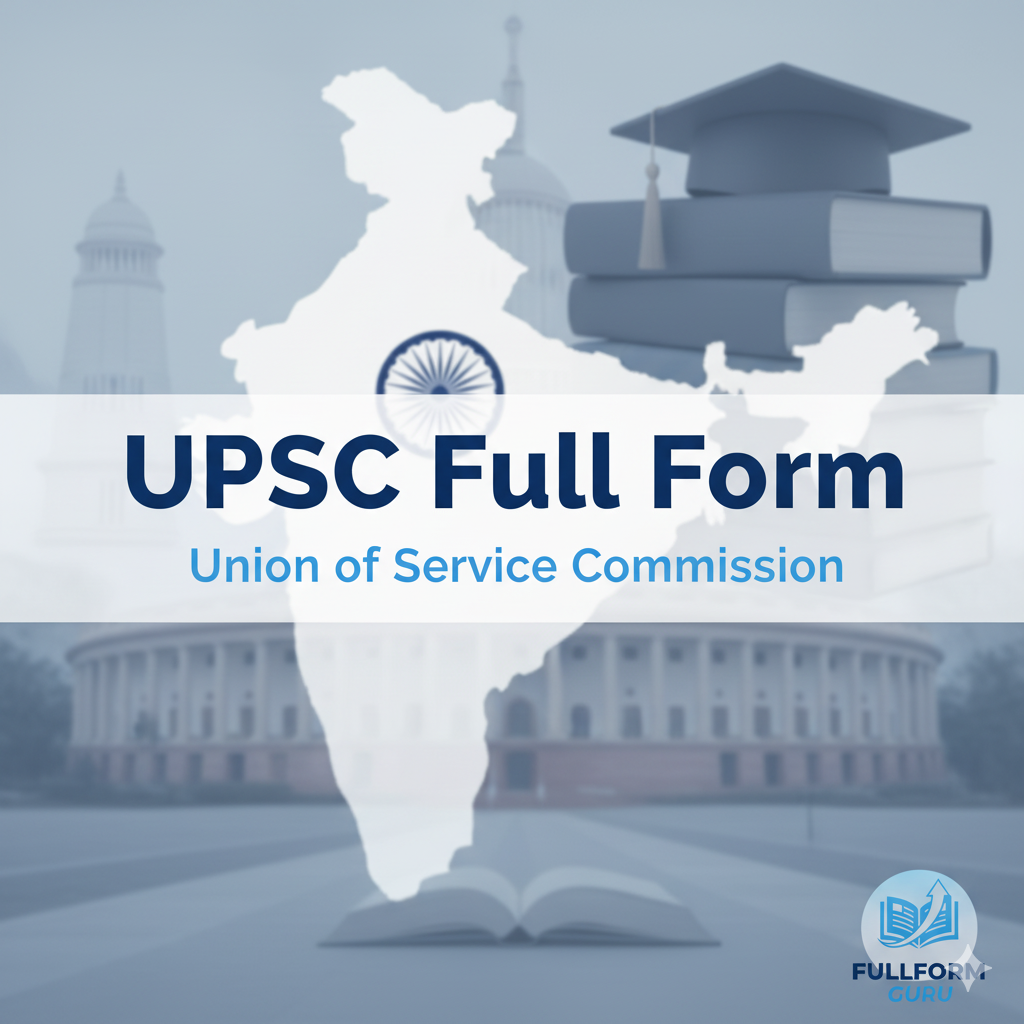
Types / Variants of UPSC Exams
The Union Public Service Commission conducts several exams every year, not just the Civil Services Exam (CSE). Each exam serves a different purpose and opens doors to various career opportunities in government services. Here are the major types:
- Civil Services Examination (CSE) – For IAS, IPS, IFS, IRS, and other central services.
- Indian Forest Service Examination (IFoS) – Specifically for recruitment to the forestry services.
- Engineering Services Examination (ESE/IES) – For engineers in government departments.
- Combined Defence Services Examination (CDS) – For entry into the Indian Military Academy, Naval Academy, and Air Force Academy.
- National Defence Academy & Naval Academy Examination (NDA/NA) – For young candidates seeking entry after 12th grade.
- Combined Medical Services Examination (CMS) – For doctors to serve in various government healthcare services.
- Central Armed Police Forces Examination (CAPF) – For the recruitment of Assistant Commandants in paramilitary forces.
In short, UPSC is not limited to IAS or IPS—it offers a wide range of opportunities for aspirants from various educational backgrounds, including medicine, engineering, law, and even 12th-grade pass-outs. Many students search for the UPSC Full Form-related exams, such as CSE, NDA, and CDS, to understand which service they belong to.
Who Should Consider UPSC?
People often hear about the UPSC Full Form but do not realize the level of dedication it requires to clear such an exam. This exam is not for everyone—it requires patience, consistency, and a strong desire to serve the nation. However, if you find yourself fitting into the categories below, UPSC might be the right path for you:
- Aspiring Leaders – If you want to work in top administrative roles like IAS, IPS, or IFS.
- Problem-Solvers – People passionate about addressing social, economic, or environmental issues.
- Students with Strong Academics – Those with a good grasp of subjects like history, polity, economics, and general studies.
- Dedicated Professionals – Engineers, doctors, or lawyers who wish to shift from private practice to public service.
- Young Dreamers – Even fresh graduates or final-year students who have the zeal to prepare can consider it.
In short, UPSC is for anyone ready to commit 2–3 years of disciplined preparation and be motivated to create a positive impact on society.
Benefits / Advantages of UPSC
Clearing UPSC is not just about securing a government job—it opens doors to lifelong opportunities and responsibilities. Some key benefits include:
- Prestige & Respect – IAS, IPS, and other services are among the most respected careers in India.
- Job Security – Working in government positions provides stability and long-term growth.
- Attractive Perks – Employees receive housing, transport, healthcare, and retirement benefits.
- Nation-Building Role – Officers directly contribute to policy-making and development.
- Diverse Career Options – From administration to foreign services, candidates can choose from multiple streams.
- Global Exposure – Services like IFS allow officers to represent India on international platforms.
The advantage is the power to make a difference in society, something that very few careers can provide. Once you know the Full form of UPSC and its purpose, you begin to understand how essential these services truly are.
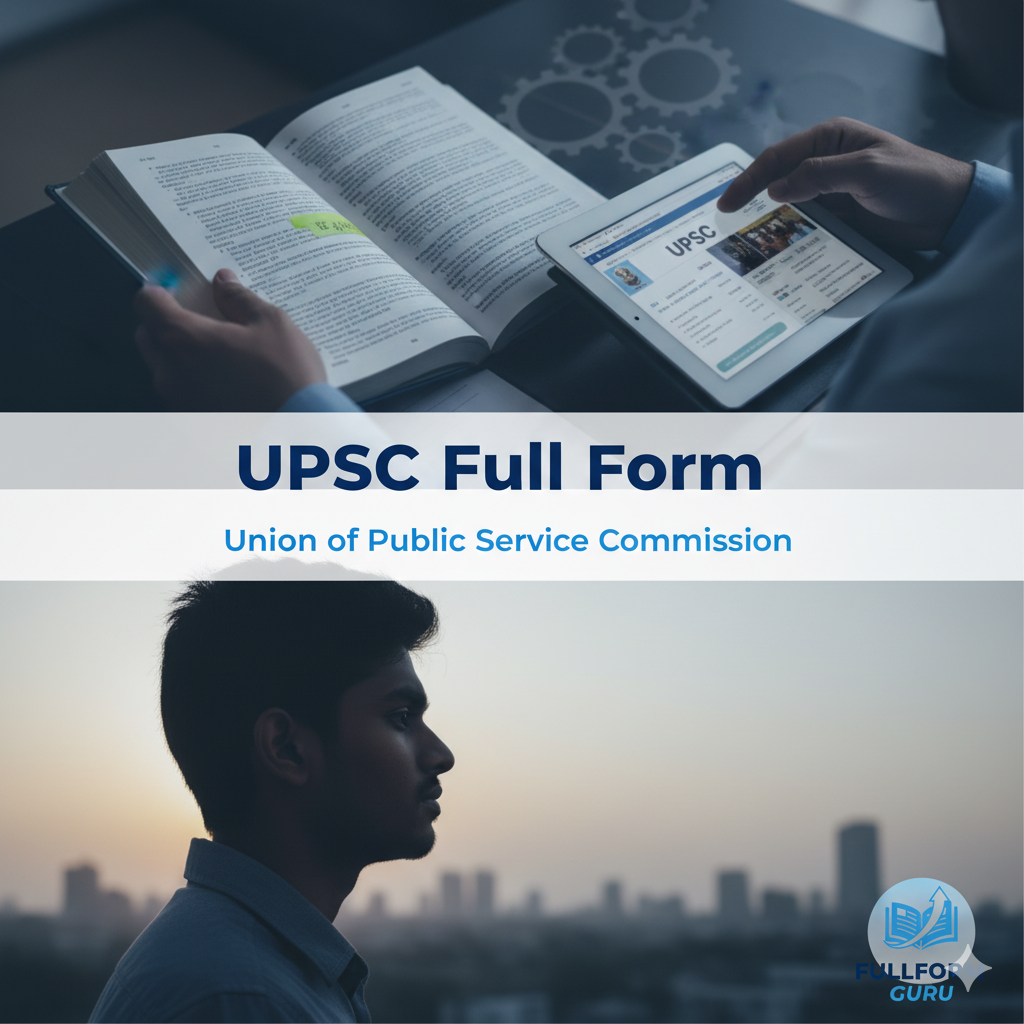
Comparison with Alternatives (Table)
Compared to other exams, such as MBA or Law, the UPSC Full Form itself reflects its importance as a national institution. The table below highlights the differences:
| Aspect | UPSC / Civil Services | MBA / Corporate Career | Law / Judiciary Career | Private Sector Jobs |
| Entry Difficulty | Very High (low success rate) | Moderate to High (depends on college) | Moderate (law entrance exams) | Moderate (skills + interviews) |
| Job Security | Extremely High | Moderate (depends on company) | High (judicial services are stable) | Low to Moderate |
| Salary Growth | Stable, with government perks | High potential with promotions | Stable with gradual growth | Depends on performance & company |
| Social Prestige | Very High | Moderate to High (varies) | High in legal circles | Moderate |
| Impact on Society | Direct, through policy & governance | Indirect, via business influence | Directly, via the justice system | Limited |
| Global Exposure | Available (esp. in IFS) | High (MNCs, global firms) | Limited (primarily national) | High in international companies |
This comparison highlights that UPSC is not just a career—it’s a lifestyle choice, particularly for those seeking security, prestige, and impact.
How to Get Started with UPSC
Preparing for the UPSC exam requires planning, patience, and regular effort. If you are new, here’s a practical step-by-step guide:
- Understand the Exam Pattern
- Learn about Prelims, Mains, and Interview stages.
- Go through the UPSC syllabus carefully.
- Collect the Right Resources
- NCERT books (Class 6–12) for strong basics.
- Standard books for subjects like Polity, History, Geography, and Economy.
- Daily newspaper reading.
- Make a Realistic Study Plan
- Divide subjects across months.
- Keep time for revision and practice tests.
- Study at least 6–8 hours daily with focus.
- Practice with Mock Tests
- Attempt previous year question papers.
- Take online/offline test series for self-assessment.
- Stay Consistent and Motivated
- Avoid distractions such as social media during study hours.
- Track your progress weekly.
- Ensure your well-being with proper sleep and exercise.
For Example, if you start in January, you can finish the NCERT basics in 3 months, then move to advanced subjects and practice tests for the next 6–8 months.
Conclusion
The UPSC Full Form—Union Public Service Commission—represents dedication, service, and excellence. Understanding its Full form helps aspirants realize the real value of this journey. This exam is not just a test—it’s a journey that builds discipline, patience, and a deep understanding of society. With the right preparation strategy, dedication, and consistent effort, anyone can crack this exam and step into a career that impacts millions of lives. Remember, success in UPSC is not about being the “most intelligent” but about being the most consistent and determined. Your hard work today will shape a better tomorrow—not just for you, but for your entire nation.

